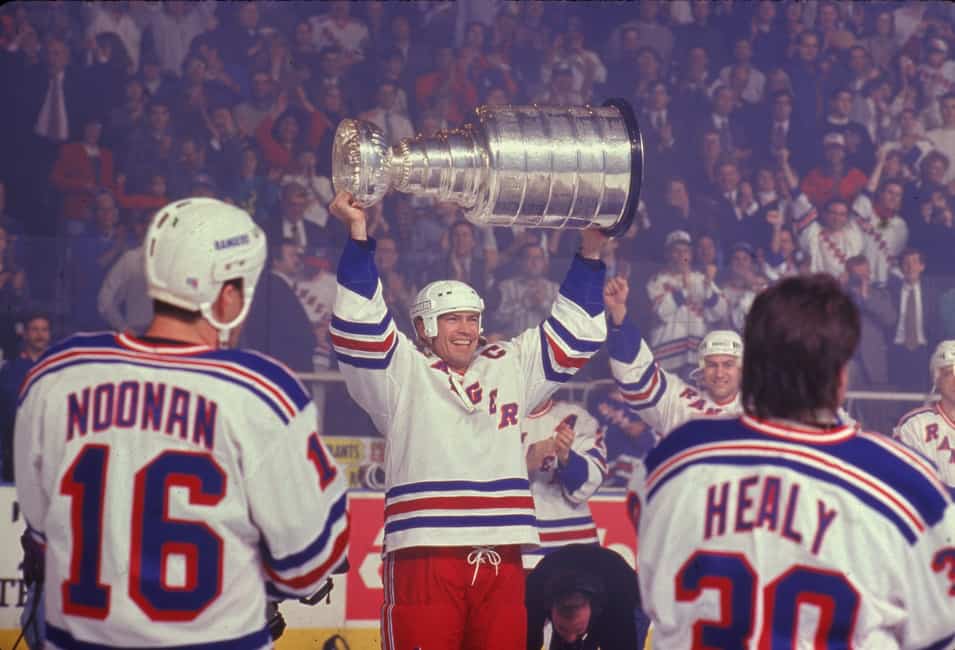

The departure of Mark Messier from the New York Rangers in the summer of 1997 marked a significant turning point for the franchise, signaling the end of an era that had brought unparalleled success and a Stanley Cup championship to Manhattan. After helping the Rangers break a 54-year Cup drought in 1994, Messier's exit left a void that the team struggled to fill for years to come.
Messier's arrival in New York in 1991 had instantly transformed the Rangers into a contender. Acquired from the Edmonton Oilers, where he had already won five Stanley Cups, Messier brought a winning pedigree and a strong leadership presence to a team that had long been starved for success. He was named captain and quickly became the face of the franchise, leading the team with his exceptional playmaking skills, physical style, and unwavering determination.
The 1994 Stanley Cup victory remains the defining moment of Messier's tenure with the Rangers. His leadership during that playoff run was legendary, most notably his guarantee before Game 6 of the Eastern Conference Finals against the New Jersey Devils, which the Rangers won to force a decisive Game 7. The Rangers went on to defeat the Vancouver Canucks in seven games to capture the Cup, cementing Messier's legacy as a New York icon.
However, the dream combination of Messier and Wayne Gretzky could only get the Blueshirts to the Conference Finals, where they ultimately lost to the Philadelphia Flyers. Despite Messier's desire to finish his career in New York and his willingness to accept a one-year contract extension for less than $6 million per season, the Rangers opted not to renew his deal. Team president Dave Checketts publicly stated that the organization did not believe Messier was worth a three-year, $20 million commitment.
This decision proved to be controversial, given Messier's contributions to the team's success. General Manager Neil Smith expressed confidence in his alternative plan, centered around Gretzky and Pat LaFontaine. Smith even attempted to acquire Joe Sakic from the Colorado Avalanche, signing him to an offer sheet, but Colorado matched the offer.
Meanwhile, Messier signed a lucrative free-agent deal with the Vancouver Canucks at the age of 36. His departure marked the beginning of a difficult period for the Rangers, who missed the playoffs for the next three seasons. LaFontaine suffered a career-ending concussion during the 1997-98 season, and Gretzky retired the following year, leaving the Rangers without their intended center depth.
In hindsight, letting Messier walk became one of the more debated decisions in franchise history. For many fans, his departure was the primary reason for the team's subsequent struggles. The Rangers went through two coaching changes and a complete overhaul of upper management before Glen Sather was hired as the new general manager.
Sather's first major move was to bring Messier back to New York in 2000, signing him to a two-year, $11 million contract. Although Messier promised a return to glory, the Rangers failed to make the playoffs during his second stint with the team. While he initially produced better numbers than he had in Vancouver, his performance declined in his final seasons. Messier retired in 2004, leaving behind a complex legacy. While his initial tenure with the Rangers was marked by unparalleled success, his departure in 1997 and subsequent return did not bring the same results.